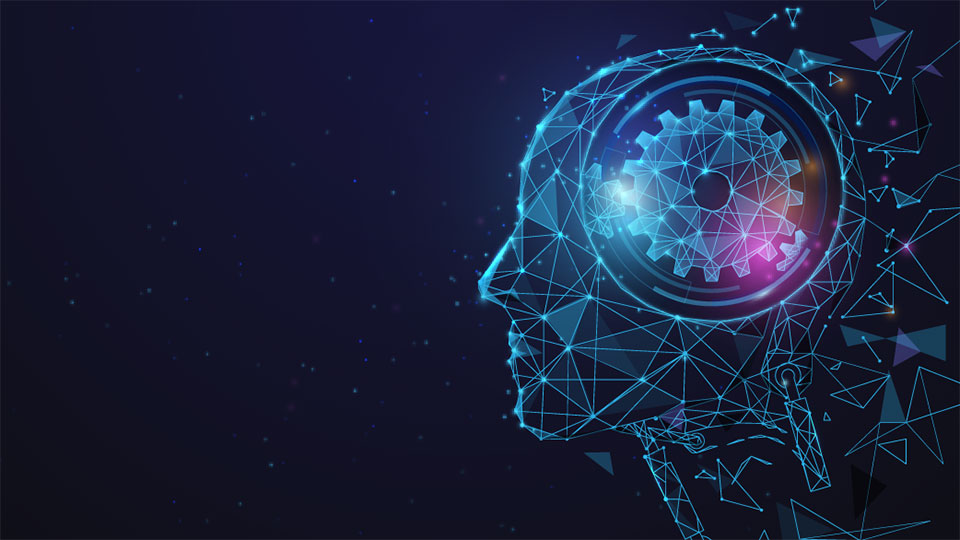We might earn money when you click links to our partners. Learn More.
%20Is%20Used%20In%20Biometrics.jpg)
What is synthetic basic intelligence (AGI), and why does it matter? As one of the most talked-about subjects in innovation today, it has triggered a race among leading business like OpenAI and Google to turn this innovative concept into reality. Understanding AGI is important because it has the potential to revamp industries, affect our society in extensive ways, and change the method we communicate with innovation. Here's what you need to understand about what it might be able to do, how it might change markets and fields, and the substantial difficulties facing its advancement.
KEY TAKEAWAYS
• AGI varies from conventional AI in crucial methods in that it would be able to believe, discover by itself, and adapt to new challenges like human beings unlike standard AI, which is developed for specialized jobs and operates within a limited scope. It needs humans to upgrade and improve capabilities. (Jump to Section).
• Once it becomes a reality, AGI would be able to make amazing advances in numerous fields, including healthcare, research, and financing sectors. (Jump to Section).
• Creating AGI is difficult due to the research study challenges that include technical, ethical, and societal concerns. Addressing these challenges is main to maintaining the safe and positive development of this technology. (Jump to Section)

Featured Partners: Artificial Intelligence Software
Learn More
TABLE OF CONTENTS
What is Artificial General Intelligence (AGI): A Clear Definition.
Understanding AGI vs Traditional AI.
Potential Applications of Artificial General Intelligence.
Challenges in Artificial General Intelligence Research.
3 Introductory AGI Courses to Consider.
Frequently Asked Questions (FAQs).
Bottom Line: Why Knowing What Is Artificial General Intelligence Matters.
What is Artificial General Intelligence (AGI): A Clear Definition
Artificial basic intelligence, or AGI, describes a kind of synthetic intelligence (AI) that can interpret, find out, and carry out any cognitive job that a human can do. Unlike today's AI, which is built to deal with specific tasks like advising items or processing information, AGI would have the ability to adjust to brand-new obstacles and use knowledge throughout different fields. To put it simply, this innovative type of AI would believe and reason like a human. While AGI holds excellent potential, it's worth noting that it is still a concept today, with no fully developed systems readily available yet.
Key Capabilities of Artificial General Intelligence
AGI would have a variety of abilities that imitate human intellectual functions, so it can carry out jobs beyond the narrow focus of the present AI tools in the market. Some essential capabilities include the following:
Human-Like Reasoning: The technology would be able to comprehend and make decisions the way humans do. It would think seriously, resolve problems, and develop solutions based on its own experiences and past interactions, comparable to how we apply previous understanding to brand-new situations.
Solving Unfamiliar Problems: Among AGI's strengths is its prospective to tackle new issues. Unlike standard AI, which is trained to perform particular jobs, AGI would have the capability to manage issues it hasn't been straight trained to fix. It could find out how to approach a totally new obstacle, similar to people do when confronted with something we have actually never ever experienced before.
Self-Learning and Adapting: AGI might fine-tune its abilities and find out from experience, without the requirement to be manually updated each time. It would observe and evaluate information, gain from errors, and find better methods to finish jobs with time. This indicates AGI might adjust to brand-new situations and improve at jobs on its own.
Using Knowledge Across Different Areas: AGI would have the ability to take what it finds out in one location and apply it to other tasks. For instance, if it found out how to fix math issues, it might utilize that knowledge to attend to challenges in other fields, like science or company. The ability to transfer skills across different areas is something people do naturally and would make the innovation flexible in varied sectors.
Understanding and Reacting To Emotions: Recognizing and reacting to human feelings would also be within AGI's capabilities. This would be very important in settings where understanding people's sensations matters, such as health care, customer support, or social scenarios. By reacting to feelings properly, AGI would be much better equipped to work with people in an efficient way.
Understanding AGI vs Traditional AI
The table below supplies a photo of the significant differences in between AI and standard or narrow AI by underscoring their capabilities, adaptability, and present status.
AGI would have the capability to think, discover autonomously, and adapt to new difficulties like people. However, it is still theoretical and experienciacortazar.com.ar has actually not been realized yet. On the other hand, traditional AI is built for specific jobs and runs within a fixed scope. It can not adapt to new tasks without human input.
For instance, an AGI might discover to diagnose medical conditions, then utilize that knowledge to develop customized treatment plans-and even adjust its technique based on the client's progress. Additionally, it might use this problem-solving ability to tasks in completely various fields, such as producing business strategies or encouraging on ecological conservation. On the other hand, conventional AI, like a diagnostic tool, can just analyze medical data for specific conditions. It can not adapt to other areas or enhance on its own.
Potential Applications of Artificial General Intelligence
While AGI isn't here yet, its potential applications cover various fields and hold terrific promise of extreme advancements in many sectors. Without being restricted to particular tasks like narrow AI, AGI would be highly versatile and might apply its capabilities to solve multi-disciplinary issues. It might conquer difficulties presently beyond the abilities of existing AI applications.
Transforming Healthcare
AGI would alter the video game in healthcare by diagnosing complex and unusual diseases with higher accuracy, even in cases where symptoms are uncertain or overlap with numerous conditions. It might create highly personalized treatment plans by studying client history, genetic info, and real-time health data. In addition, AGI could accelerate drug discovery, identifying possible treatments in weeks instead of years by processing enormous datasets and running predictive simulations.
Advancing Scientific Research
In clinical research study, AGI would be able to mimic experiments, analyze intricate datasets, and produce hypotheses. It might speed up breakthroughs in quantum physics, genomics, and climate science. By incorporating knowledge from various domains, the technology could reveal connections and solutions that may otherwise go undetected by traditional AI.
Improving Industry
Organizations in the commercial field could utilize AGI to increase performance in real-time by handling whole supply chains. It would forecast and fix interruptions before they happen. In manufacturing, it might supervise self-governing factories, optimizing production processes while keeping security and quality standards. Its ability to adapt to altering situations would make it an invaluable tool in commercial environments.
Enhancing Business Strategy
AGI might improve organization decision-making by examining market patterns, consumer behavior, and operational data to find chances and threats. In contrast to narrow AI systems, AGI would innovate solutions to difficult organization issues, such as handling financial uncertainty or forecasting long-term market shifts. Its ability to gain from varied sources would empower organizations to stay competitive.
Redefining Finance
In the monetary sector, AGI might increase forecasting accuracy by detecting patterns in large amounts of monetary information, so financiers and organizations can make informed choices. It would also be able to identify scams in real-time by recognizing subtle anomalies that traditional AI systems might miss. Additionally, AGI might construct more robust financial models, factoring in complex variables and scenarios to reduce risks.
Challenges in Artificial General Intelligence Research

Developing AGI is one of the most ambitious objectives in innovation, but it comes with numerous troubles. These obstacles consist of technical, ethical, and societal locations, making AGI advancement a detailed and multi-faceted procedure. Overcoming the following difficulties amounts ensuring safety, supporting ethical standards, and thoroughly preparing how AGI's introduction and usage will impact people, markets, and society as a whole:
Making AGI Truly Flexible: AGI would need to deal with a large range of problems and adapt to new scenarios, just like human beings. Building a system of versatility is incredibly hard due to the fact that present AI tools are not created to think or find out at this level of elegance.
Massive Computing Needs: To reproduce human intelligence, AGI would need huge amounts of computing power to procedure info from varied sources quickly. Determining how to make such systems effective and efficient enough for real-world use is a significant challenge.
Understanding Human Intelligence: We don't totally comprehend how human believing works, especially complex aspects like instinct or awareness. Without this understanding, it's challenging to develop devices that can emulate human-like thinking.
Making AGI Safe and Ethical: AGI might possibly be misused, like to produce prejudiced systems or harmful tools like autonomous weapons. Researchers need to make sure that AG is developed responsibly and follows rigorous ethical guidelines. This is a tricky job that necessitates worldwide cooperation.
Keeping It Under Control: There's a danger AGI could act in ways we don't expect, especially given that it would have the capability to find out and alter over time. Ensuring that these systems stay aligned with human values and are safe to use is among the biggest difficulties in AGI research.
Impact on Jobs and Society: If AGI ends up being a truth, it might replace tasks or cause economic inequality by benefitting some groups more than others. Preparing for these social effects is just as essential as building the innovation itself.
High Costs and Resources: Researching AGI requires a lot of cash, time, and specialist knowledge. Not all companies have these resources, decreasing progress and leaving smaller sized services out of the race.
3 Introductory AGI Courses to Consider
Familiarizing yourself with AGI can provide you an one-upmanship, whether you wish to advance your profession in AI or simply wish to stay informed about emerging technologies. The following initial courses can help you acquire a deeper understanding of what artificial general intelligence is, so you can strengthen your understanding about this promising AI development.
Artificial General Intelligence (AGI): An Initial Course on Udemy
This Udemy course supplies a fundamental understanding of AGI, suitable for novices without any prior experience. The course covers relevant topics, including the structures of AI, the fundamentals of AGI, and the most current trends in the field. It also checks out the benefits, threats, and obstacles related to AGI, equipping you with insights into what the sophisticated technology can achieve. The whole course includes 15 lectures and can be finished in approximately 45 minutes. Upon completion, you will get a certificate to bolster your qualifications in the task market. This introductory course costs $24.99.
Intro to Artificial General Intelligence (AGI): Future of AI on Udemy
Udemy's introductory course uses a thorough introduction of AGI for learners without any technical background. It goes over the historical context and foundation of AGI, the distinctions between narrow AI and AGI, and ethical considerations surrounding its advancement. In addition, it addresses future trends in AI and AGI, shedding light on the challenges and opportunities that lie ahead. Spanning one hour and 46 minutes, the course includes 39 lectures, on-demand video, and downloadable resources. It also has a dry run at the end to reinforce your understanding. You will be granted a certificate when you finish the course. It is available as part of Udemy's premium plans, beginning at $20 per month, or as a separate purchase of $49.99.

Artificial General Intelligence (AGI) on Udemy
This Udemy course brings a clear and succinct intro to the topic, with on-demand videos and 22 lectures. It elaborates on significant AGI ideas and the function of robotics in AGI development. It likewise takes a look at the ethical, software, and hardware difficulties in creating AGI. The course supplies tests to check your knowledge and a certificate of completion. Priced at $44.99, it is produced learners at any level, making it available and valuable for anyone who wishes to discover more about AGI.
Frequently Asked Questions (FAQs)
Achieving AGI might transform markets, boost decision-making, and result in considerable improvements in technology. However, it also raises issues about principles, job displacement, and the need for proper guideline to make certain it is developed safely and properly.
Experts disagree on how far we are from accomplishing AGI. Sam Altlman of OpenAI thinks in 2025, AI agents may join the labor force, eventually paving the way to AGI development. On the other hand, a study of AI researchers puts the average estimate around 2047. Despite quick AI improvements, current systems are still limited to narrow tasks and lack the broad, versatile thinking of humans-so AGI is likely still years away.
The idea of AGI completely replacing humans is still debated. Even though it's most likely that AGI will help us by taking control of recurring jobs, there is a possibility that it might displace particular tasks. That stated, rather than completely changing human beings, AGI is expected to work together with us, dealing with technical responsibilities while we concentrate on jobs that require imagination and empathy. At the end of the day, the impacts of AGI will depend upon how society chooses to handle and incorporate it.

Bottom Line: Why Knowing What Is Artificial General Intelligence Matters
Understanding synthetic basic intelligence is vital because this innovation might change industries, resolve hard problems, and change how we use AI. But as we start to establish AGI, we should thoroughly attend to numerous obstacles, including technical issues, ethical issues, and its total influence on society. By learning more about AGI's possible and threats, we can work towards ensuring it is produced responsibly and used in ways that would benefit everybody.







